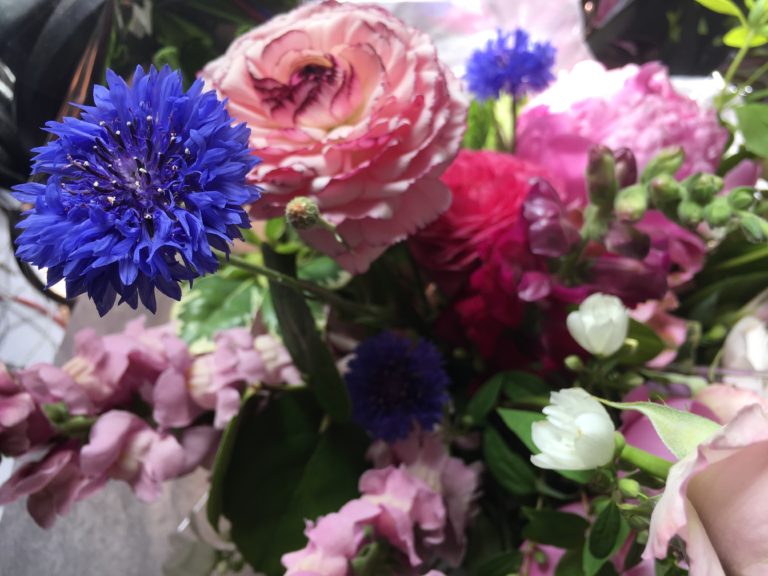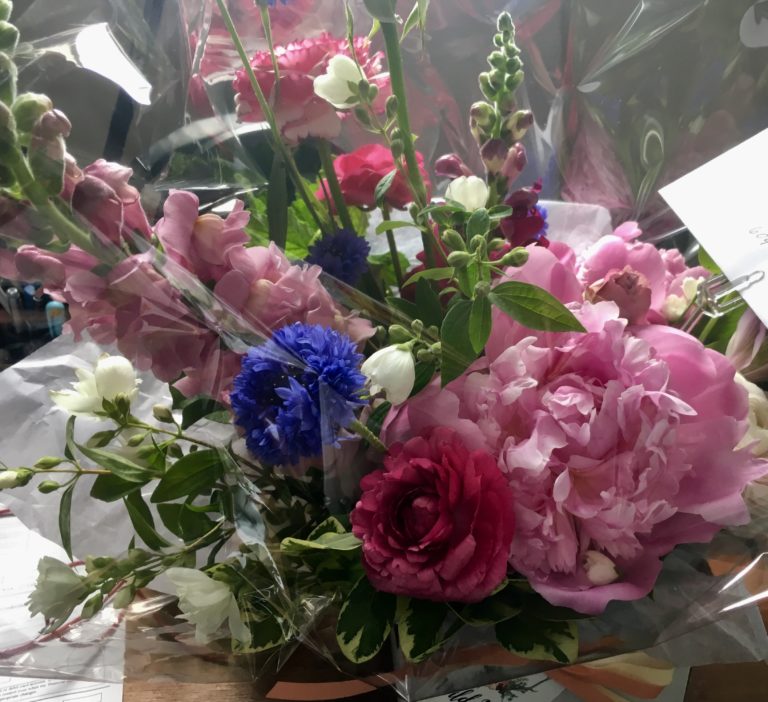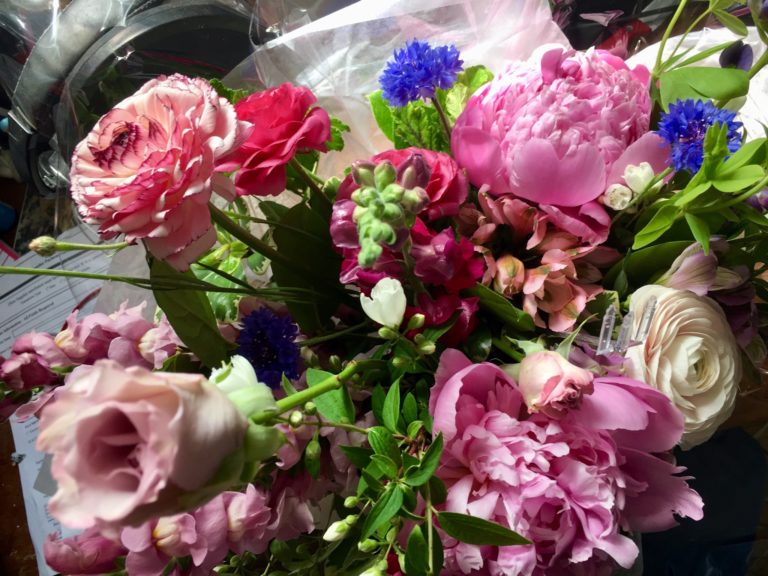
I learned what love felt like from someone I couldn’t bring myself to love.
She was a close friend in high school whose harmless puppy-love toward me darkened into something deeper over our sophomore year. Try as I might, and try though I did, I couldn’t conjure the caliber of crush in return that she shone on me like fervent floodlights. Love can’t be forced, and she knew that, but I’m sure it made her sad anyway. I’m sure it also made her sad that we had a sexual relationship for over a year that remained only one-sidedly romantic. Look, tenth-graders don’t always make the most rational decisions.
I’ve spent ten years processing that relationship, and I guess she probably has too. We’ve made amends for the ways we fucked up, each trying to squeeze the other into an ill-fitting box. But what’s stuck with me most from that relationship was how obsessed with me she was.
(A note worth noting: this post will throw around the words “obsessed” and “obsessive” in their colloquial senses, and not the sense used in mental health diagnostics – although I and at least some of the people I’m describing have mental illnesses that feature some degree of invasive thought-loops one could consider obsessions.)
My tenth-grade paramour wrote me long emails and romantic poems. She kept up with my foibles on Facebook and Twitter, both relatively new and uncommonly-adopted technologies at that time. She mined me for minute trivia, plumbing my lore like I was my own cinematic universe. After a while, she knew everything from my favorite flavors of ice cream to my top 5 favorite Regina Spektor songs to my darkest fears. When our English teacher gave our class carte blanche to do a deep-dive on a topic of our choosing for our final project, she did her project on… me. Those documents are still tucked away in my Google Drive somewhere, curious little remnants of a love that once was.
It is, of course, flattering to be someone’s top priority and main focus – assuming this attention doesn’t frighten you or make you uncomfortable. But I think the reason her love comforted me was that it felt familiar. My crushes had always taken on a similarly obsessive tone: when I pined over pseudo-celebrities of the local comedy or theatre scene, I Googled them late into the night, memorized their answers to interview questions, gave them more real estate in my brain than perhaps they deserved. So when I felt that similarly laser-focused love being aimed at me, I recognized it for the love that it was. Though she was the first person ever to fall in love with me, it wasn’t hard for me to believe or accept; I knew what it was because it looked how I expected it to look. It looked like how I would love someone, if I ever did.

Almost a decade later, the shadow of that old love filtered through my consciousness again – because I fell in love with someone who wasn’t obsessed with me. And it hurt.
I wonder, in retrospect, if I was drawn to him because he was everything I’ve never been able to be: chill, cool, aloof. Aside from initiating our relationship by asking me out on Twitter, his expressions of enthusiasm toward me were scant. Maybe that just made me want him more. (Is this a lesson we all have to learn at some point? That the chase is fun but also exhausting? I hope I’m done learning that one.)
I felt – to partly dilute a word that maybe I shouldn’t be diluting – gaslighted. He told me over and over again that he liked me, loved me, wanted to be with me, but his behavior was comparatively devoid of evidence he wanted me around. He’d ignore my texts for hours at a time, neglect to keep his promises, back out of plans at the last minute, and pull away coldly when I wanted closeness and warmth. I don’t know that he was doing this intentionally, as the “gaslighting” label would suggest – but the net effect was, regardless, a sense of emotional whiplash. I kept reminding myself to listen to his words, because they no doubt were truer than my anxiety-warped perception of his actions – but actions, as you well know, tend to speak louder. His were drowning out his words.
I brought this to his attention only once, and came to regret it. We were looping the same argument we’d been having for basically our entire relationship: I resented that he wouldn’t give me the assurances I felt I needed, and he resented that I needed them. Grasping at straws, I tried to explain: “It’s hard for me to recognize love as love when the person isn’t kind of obsessed with me, because when I like someone, I want to know everything about them, I want to see them as much as possible, and I think about them almost all the time.”
Some part of me hoped he would counter with what I wanted to hear: that he did think about me constantly, that he was obsessed with me; how could I not have noticed? Instead, he replied, “I don’t really get obsessed with people. I never have. That’s just not how I operate.”
Wise and level-headed people in my life, like my therapist and my best friend, would probably tell me to just accept a lower level of attention and devotion from partners. Just because someone doesn’t pine over you nonstop, they might tell me, doesn’t mean they’re blasé about you. If you broaden your view of what love can look like, you expand your ability to be loved, to feel loved.
That’s true, I guess. But I wanted love I didn’t have to do cognitive backflips to understand. I wanted love that was more joy, less compromise. I wanted love that mirrored my own, that matched me in my wild zeal. So when that boy broke up with me, although I was crushed, part of me was relieved. It felt more peaceful, more pleasant, to know for sure that no one loved me romantically, than to beg for scraps of affection that never quite felt like enough.

When I met my now-boyfriend, then-Twitter-crush, one of the first things he told me about himself is that he’s obsessive. I thrilled at the possibility of familiarity.
It didn’t take long for me to discover how right he was, how core this quality is to who he is. Intrepid Googling and curious research have left him well-informed on a broad range of topics. He can tell you the top 5 best cocktail bars in any neighborhood in New York, off the top of his head. He geeks out about etymology, psychology, philosophy. Once, during a conversation over drinks about whether or not our D/s dynamic is technically 24/7, he said, “That reminds me of this quote from SM 101…” and pulled it up on his phone in seconds. I swooned.
As we got to know each other, he’d casually reference old videos of mine, tweets, blog posts. He got embarrassed each time I called him out on it, backpedaling and blushing audibly over the phone, but my screeches of “How do you know that?!” were never accusatory – only excited. For me, combing through a crush’s internet presence is par for the course; it had been years since anyone had made me feel spotlighted that way in return.
He commissioned me a custom perfume based on a list of preferences he cobbled together from research. He devoured my sex toy reviews so he’d know what I like to be fucked with, and worked his way through my podcast so he’d know how I like to be fucked. When he sends me flowers or brings me treats, his selections are educated guesses – or sometimes, exactly the right thing.
The more I think about it, the more I doubt that “obsessive” is the right word. The essence of romance, and indeed of love, is focusing on your paramour: giving them your attention, putting effort into them, demonstrating your enthusiasm for them over and over. That sharp passion is what was missing from so many of my past relationships, which is why it feels especially good in this latest one. I spent years making desperate excuses for aloof partners, twisting their apathy until it looked like love. I settled over and over for paltry affection that barely warmed my skin, let alone my insides. I gave up on thinking of myself as someone worthy of obsession, even as I continued to furtively memorize my crushes’ likes and dislikes by the dim glow of my laptop in the dead of night.
I’m so happy now to be loved in the way I’ve always craved, and so happy to have discovered that love doesn’t have to be a compromise at its core. Sometimes it can just be exactly what you want.